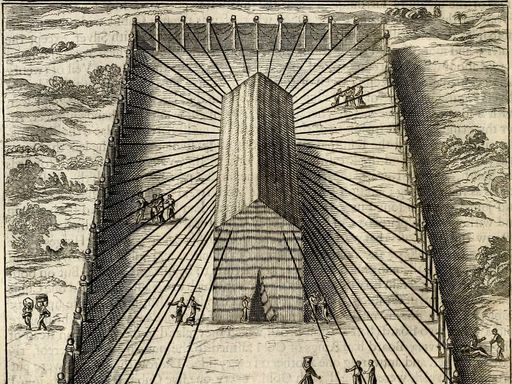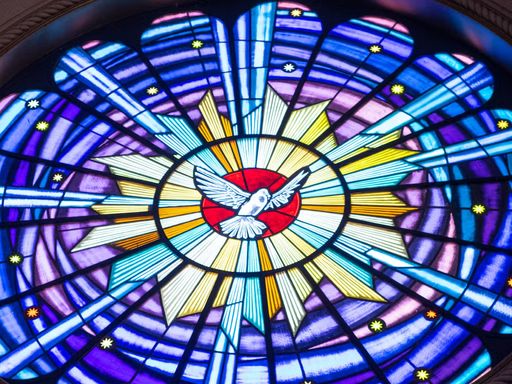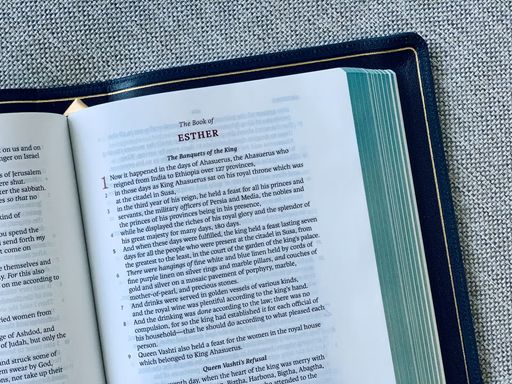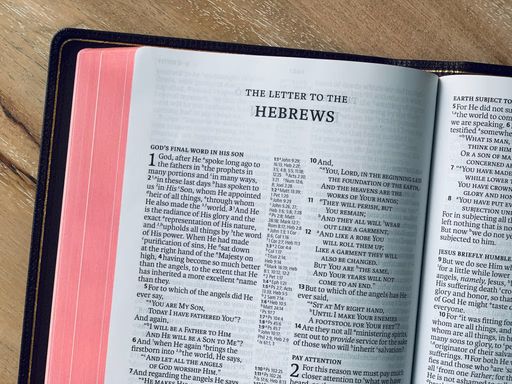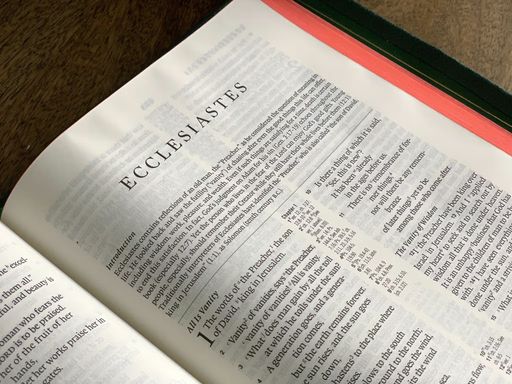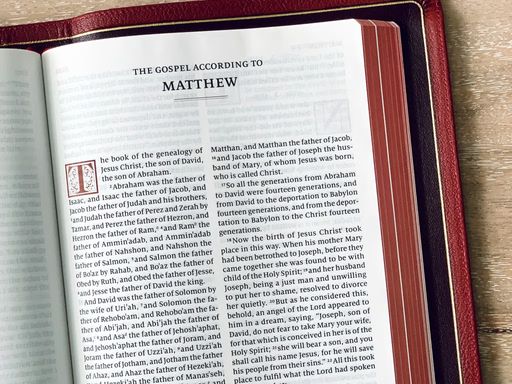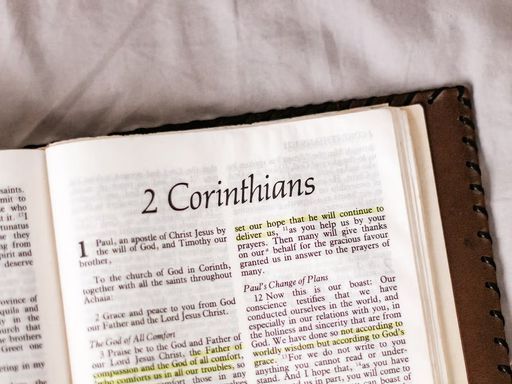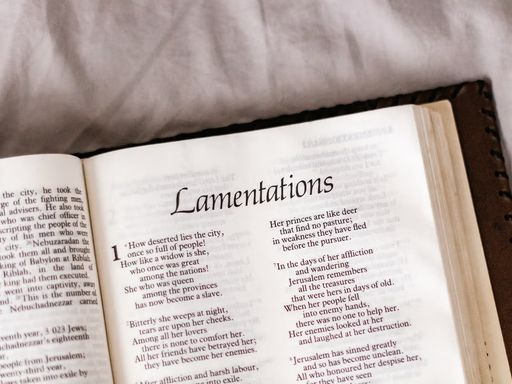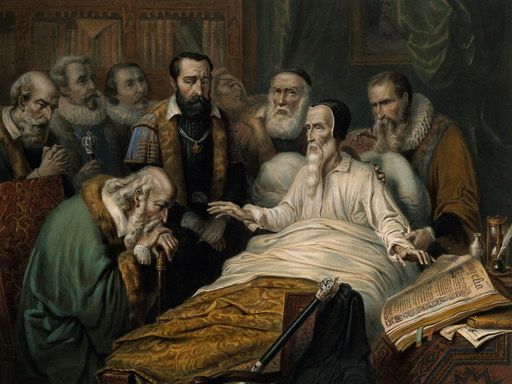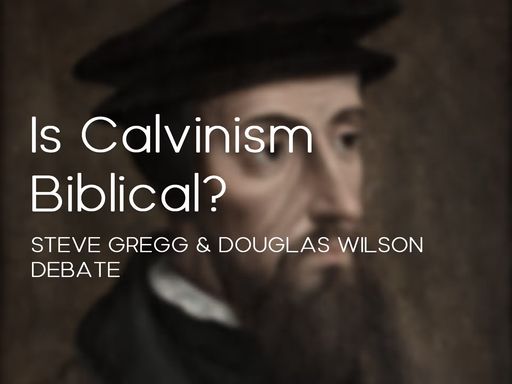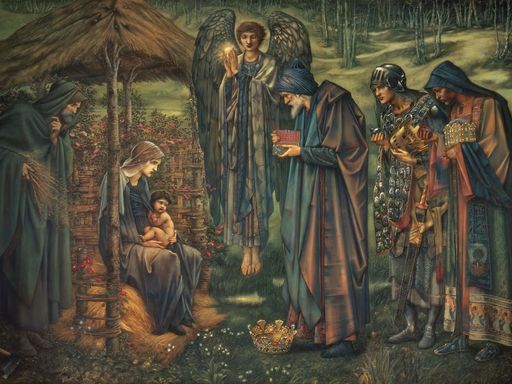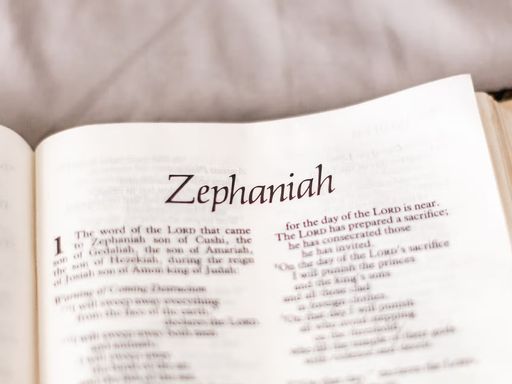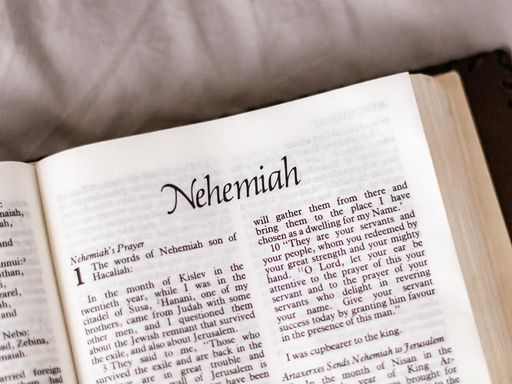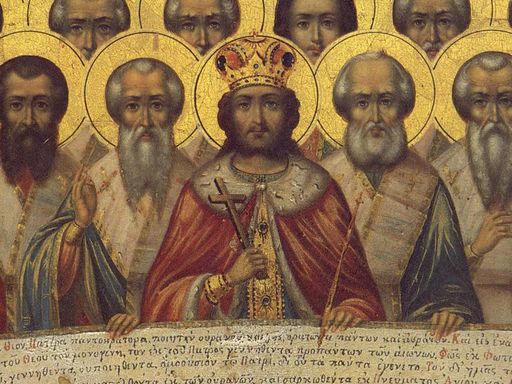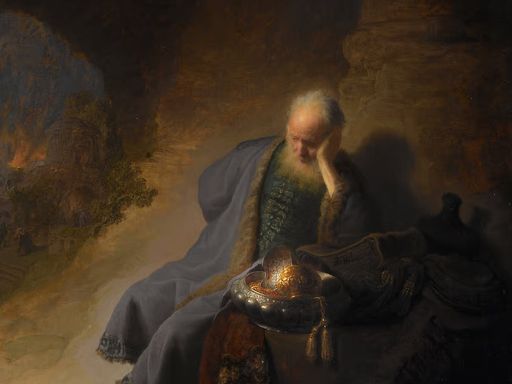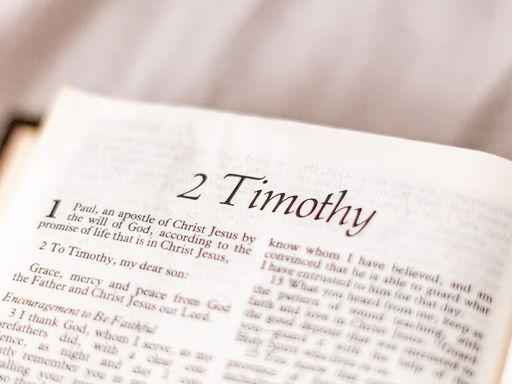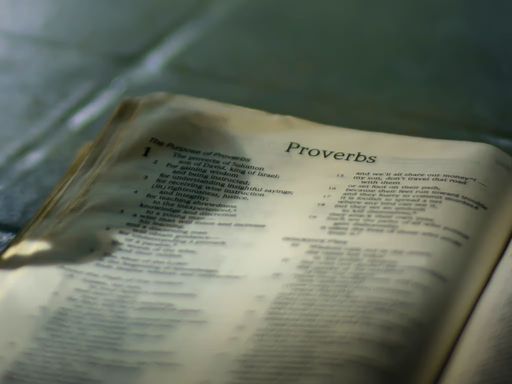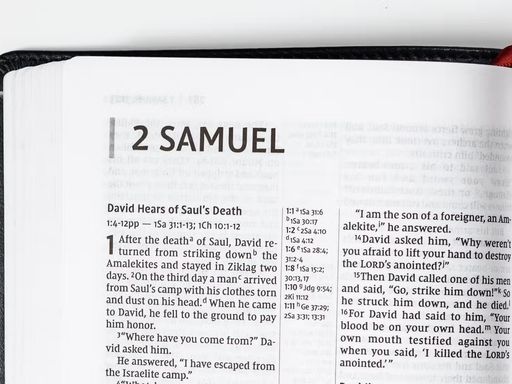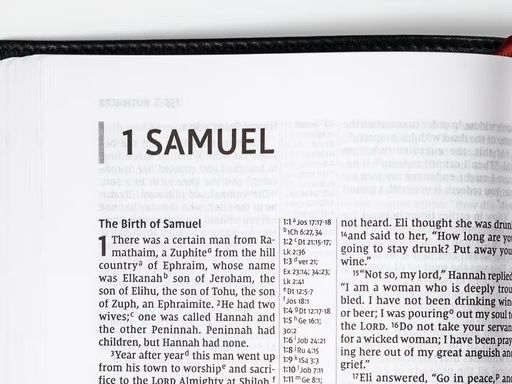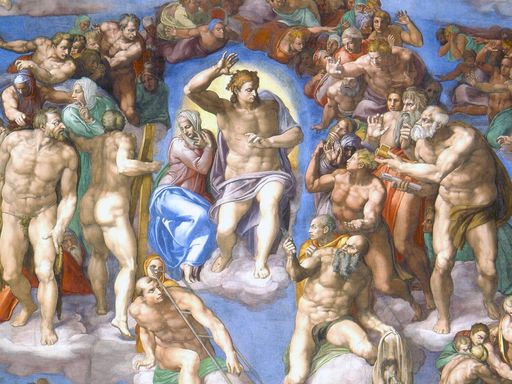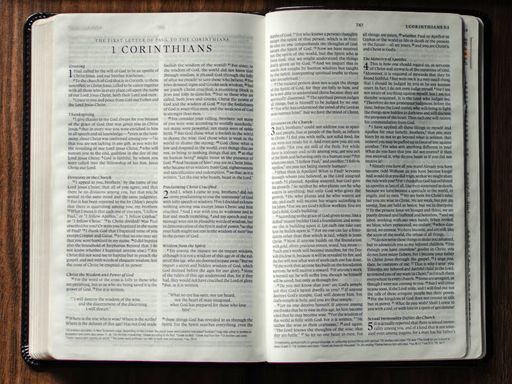
Gospel of John
Steve Gregg
In this 38-part series, Steve Gregg teaches verse by verse through the Gospel of John, providing insightful analysis and exploring important themes such as spiritual rebirth, abiding in God's love, and the significance of Christ's death.
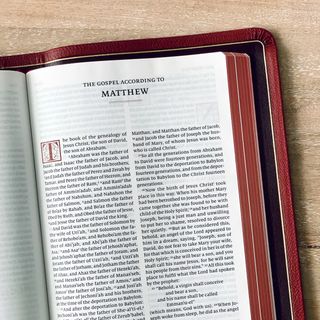
John - Introduction
In this talk, Steve Gregg introduces the Gospel of John, describing it as a favorite among Christians, and notes that it differs significantly from the synoptic gospels in its content and structure. He also discusses the authorship of the gospel, arguing that it is likely the work of the apostle Joh

John 1:1 - 1:9
Steve Gregg explores John 1:1-9, delving into the concept of the Word and its connection to Jesus. He explains that the term "logos" had a rich history, including references to divine reason and wisdom in ancient philosophy. Gregg emphasizes that Jesus is the manifestation of God's mind and will, co

John 1:10 - 1:18
Steve Gregg discusses John 1:10-18 in this lecture, focusing on the prologue of John's Gospel. He delves into the spiritual and mystical language used by the author and highlights the deliberate selection of material around John the Baptist to calm his exuberance. Gregg reflects on the concept of Go

John 1:19 - 1:51
In this passage, Steve Gregg provides an in-depth analysis of John 1:19-51. He discusses the specific group of people asking questions, who were likely concerned with the arrival of the Messiah. Jesus' relationship with John the Baptist, and his declaration that John is the "greatest among men", is

John 2:1 - 2:12
In this talk by Steve Gregg, he delves into the second chapter of the Gospel of John. He begins by giving some background on the characters mentioned in the story, including Simon Cephas, also known as Peter, and Mary, who seems to be in charge of the household. Gregg notes the veiled references to

John 2:13 - 2:25
In this analysis of John 2:13-25, Steve Gregg examines the story of Jesus driving out merchants from the temple. He notes that this event is the only one recorded in all four Gospels, although John's account is slightly different from the others. Gregg emphasizes the importance of avoiding hypocriti

John 3:1 - 3:12
Steve Gregg reflects on John chapters 2 and 3, where Jesus performs signs and Nicodemus, a Pharisee of the Jewish ruling council, seeks to understand the meaning of being "born again." Gregg argues that being "born of water" refers to natural birth, while being "born of the Spirit" refers to a new l

John 3:13 - 3:36
In this passage, speaker Steve Gregg discusses the third chapter of the Gospel of John, focusing on the concept of spiritual rebirth and the role of belief in obtaining eternal life. He also reflects on the use of metaphorical language in the Bible and its connection to the story of the bronze serpe

John 4:1 - 4:26
Steve Gregg delivers an analysis of John chapter 4, exploring the dialogue between Jesus and a Samaritan woman. Gregg provides historical and cultural context to enhance understanding while also delving into different interpretations of the conversation. He emphasizes that the theme of the conversat

John 4:27 - 4:42
In John 4:27-42, Steve Gregg discusses Jesus' encounter with a Samaritan woman and emphasizes the significance of her recognition of Jesus as a prophet and potentially the Messiah. The conversation also highlights the difference in beliefs between Jews and Samaritans regarding worship location, but

John 4:43 - 5:23
In this commentary on John 4:43-5:23, Steve Gregg notes that Jesus testifies to the truth and that his actual hometown is Nazareth, not Jerusalem. Gregg also mentions the story of a nobleman who approached Jesus for the healing of his son, highlighting the faith the man exhibited despite not seeing

John 5:17 - 5:47
Steve Gregg discusses John 5:17-5:47 and the Sabbath. He notes that God's character defines morality, justice and goodness, and that the Sabbath is an important concept. Jesus broke the Sabbath, arguing that David eating showbread was not different from the disciples breaking the Sabbath. The passag

John 6:1 - 6:21
Steve Gregg explains the events of John 6:1-21, where Jesus performs the miracle of feeding the 5,000 with only two loaves of bread and two fish. Gregg notes that this miracle took place after a discourse where Jesus claimed to be the Son of God, and that the crowd's expectations of Jesus as the mes

John 6:22 - 6:45
In John 6:22-6:45, Jesus speaks about the importance of seeking spiritual nourishment over physical needs, using the metaphor of "eating his flesh and drinking his blood" to symbolize the necessity of believing and consuming his teachings for true nourishment. This discourse is also used as proof te

John 6:46 - 6:71
In this talk, Steve Gregg explores the controversial meaning behind John 6:46-71 where Jesus speaks about eating his flesh and drinking his blood. Gregg notes that this concept is often misunderstood and that it actually represents a metaphor for consuming the word of God in order to have eternal li

John 7:1 - 7:31
In John 7, Jesus walks in Galilee as the Jews in Judea sought to kill him. The Feast of Tabernacles approaches, and the Jews want Jesus to come down to Jerusalem, but he tells them his time has not yet come. Jesus' brothers do not believe in him and mock him. The Pharisees tend to feel that Jesus is

John 7:32 - 7:53
In this passage, Steve Gregg discusses the people's divided opinions of Jesus during his time, with some believing he was good while others saw him as a deceiver. Gregg also talks about how the prophecy of the Messiah's arrival had created high expectations among the people. He then delves into Jesu

John 8:1 - 8:11
In this commentary on John 8:1-11, Steve Gregg discusses the historical background of the passage and various theories regarding its transmission and placement in the Gospel of John. He proposes that the story may have originally been part of the Synoptic Gospels' description of Jesus' final week, b

John 8:12 - 8:59
In this talk, Steve Gregg explores John chapter 8, starting with the story of the woman taken in adultery and Jesus' declaration that he is the light of the world. He discusses Jesus' claim to be the Good Shepherd, the two meanings of walking in darkness, and the concept of sinning unto death. Gregg

John 9
In this talk, Steve Gregg analyzes John 9 to discuss the theme of suffering and healing. He questions the assumptions that individuals may make about suffering and the fairness behind it, citing the example of Job's friends. Gregg suggests that it is important to not discount miracles and evidence i

John 10:1 - 10:21
In this talk, Steve Gregg reflects on John 10:1-21, discussing the contrast between Jesus as the good shepherd and the Pharisees as the hired ones. He emphasizes how Jesus is the door through which one must enter to find salvation, in contrast to the false shepherds who lead astray. Gregg highlights

John 10:22 - 10:42
Steve Gregg, in his discussion on John 10:22 - 10:42, delves into Jesus' teachings on being the ultimate shepherd of his flock, which includes both Gentile and Jewish sheep. Gregg suggests that while Jesus may have celebrated the Jewish festival of Hanukkah, his teachings extended beyond any particu

John 11:1 - 11:44
In this discourse, Steve Gregg delves into the biblical story of Lazarus from John 11:1-44. Jesus' love for Lazarus and his decision to delay his arrival despite Lazarus' sisters' request is analyzed, along with the concept of soul sleep and resurrection. Gregg explores the disciples' lack of faith

John 11:45 - 12:19
In John 11:45-12:19, the speaker discusses the lack of faith exhibited by the Jews towards Jesus despite Mary's witness of his miracles. Caiaphas' prophecy of Jesus' death and its significance as a prediction from an unlikely source is also explored. The speaker notes that Jesus' inclusion of Lazaru

John 12:20 - 12:50
In this presentation, Steve Gregg provides an analysis of John 12:20-50, covering topics such as the anointing of Jesus by Mary, the role of Gentiles in the Gospel, and the concept of dying to oneself. Gregg highlights the importance of serving Jesus and following his example. He also explores the i

John 13:1 - 13:17
In this talk, Steve Gregg interprets John 13, emphasizing John's intention to supplement rather than duplicate the other gospels. Gregg also discusses Jesus' act of washing his disciples' feet, highlighting its symbolic significance as a continuous cleansing and the importance of serving others as J

John 13:18 - 13:38
Steve Gregg provides a spiritual interpretation of John 13:18-38, discussing Jesus' analogy about washing feet and the betrayal of Judas. He emphasizes the importance of knowing the Word of the Lord and the fulfillment of prophecies as evidence of authenticity. Gregg also explores how Jesus' teachin

John 14:1 - 14:6
Steve Gregg challenges the common assumptions about the opening verses of John 14, arguing that Jesus' statement about preparing mansions in his father's house is not necessarily a reference to heaven. Instead, Gregg suggests that the word "monet" used in John 14:2 may refer to individual dwelling p

John 14:7 - 14:14
In John 14:7-14, Jesus makes one of His strongest declarations of deity, revealing the difficult-to-grasp concept of the Holy Trinity. He promises to send the Holy Spirit to empower believers to do even greater works than He performed, and that praying in His name will be powerful. However, He also

John 14:15 - 14:31
In this study of John 14:15-31, Steve Gregg delves into Jesus' promise to send the Holy Spirit as a Comforter and Advocate for his disciples. Gregg suggests that Jesus is implying that he is already serving as an advocate for his disciples, but the Holy Spirit will take on this role in the next phas

John 15:1 - 15:8
In this passage, Steve Gregg discusses the symbolism of the true vine and its branches in John 15:1-8. He explains that the purpose behind this imagery is to emphasize that every member of the church is a part of one organism, one body, and one vine. Furthermore, the fruit produced by the branches r

John 15:9 - 15:27
In this passage, Steve Gregg delves into John 15 and Jesus' metaphor of the "true vine." He emphasizes the importance of abiding in God's love and bearing fruit, which includes not only joy and peace, but also laying down one's life for others. Gregg also addresses the misconception that all non-Chr

John 16
In this session, Steve Gregg discusses the significance of John 16 in the Bible. He emphasizes the importance of the Holy Spirit for Christians and its role in guiding and teaching believers. Gregg also touches upon the issue of sin and the role of the Holy Spirit in convicting individuals. He concl

John 17
In this discourse, Steve Gregg reflects on John 17, known as the high priestly prayer of Jesus. Gregg explores the themes of unity, suffering, and knowing God, emphasizing the importance of relational love and spiritual fellowship. He also delves into the meaning of glory and the distinction between

John 18
In "John 18," Steve Gregg delves into the Gospel of John's coverage of the events leading up to Jesus' crucifixion. Gregg notes that despite some overlap with the synoptic Gospels, John's Gospel includes additional details and observations that are not found elsewhere. One notable difference is John

John 19
Steve Gregg discusses the events leading up to Jesus' crucifixion in John 19, highlighting Pontius Pilate's role in the decision. Pilate ultimately declared himself without fault in Jesus' case before mockingly referring to him as the "King of the Jews". The crucifixion was a brutal death, and Jesus

John 20
In this discussion, Steve Gregg examines the events surrounding the resurrection of Jesus as recorded in the four Gospels, particularly in John 20. He explores the possibility of tampering with the tomb and the significance of the appearances of Jesus both in Jerusalem and in Galilee. Gregg notes th

John 21
In "John 21," Steve Gregg provides insight into the final chapter of the Gospel of John. He notes that this chapter serves as an intentional epilogue to the previous 20 chapters and recounts the story of Jesus appearing to his disciples at the Sea of Tiberius. Gregg delves into the significance of t


